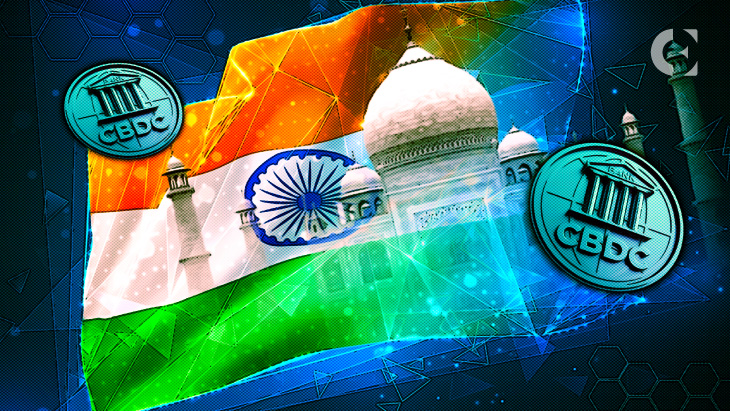- The Indian central bank will commence the first pilot digital rupee tomorrow.
- The pilot will test the robustness of digital rupee creation and distribution.
- The apex bank identified eight banks for phase-wise participation in the pilot.
The Reserve Bank of India has chosen eight commercial banks to participate in a trial stage for launching the central bank digital currency (CBDC) on December 1, 2022.
According to an official document, it would be a phase-wise participation, starting tomorrow with four banks. The financial institutions include the State Bank of India, ICICI Bank, Yes Bank, and IDFC First Bank in four cities across the country. Subsequently, the Bank of Baroda, Union Bank of India, HDFC Bank, and Kotak Mahindra Bank would join the pilot.
Additionally, the pilot stage would cover four cities, including Mumbai, New Delhi, Bengaluru, and Bhubaneswar, and later extend to Ahmedabad, Gangtok, Guwahati, Hyderabad, Indore, Kochi, Lucknow, Patna, and Shimla. RBI has pledged to expand the scope of the pilot to gradually include more banks, users, and locations as needed.
Yogesh Dayal, the chief general manager of the RBI, said:
“The pilot will test the robustness of digital rupee creation, distribution, and retail usage in real time. Different features and applications of the e₹-R token and architecture will be tested in future pilots based on the learnings from this pilot.”
Last month, the Indian apex bank published a 50-page concept note about the digital rupee. According to the concept note, the CBDC would be a digital token representing legal tender issued in the same denominations as paper currency and coins via banks. The e₹-R would offer features of physical cash, such as trust, safety, and settlement finality, without any interest-earning potential.
A statement from yesterday’s press release read:
“Users will be able to transact with e₹-R through a digital wallet offered by the participating banks and stored on mobile phones/devices.”
Furthermore, the transactions can be Person-to-Person (P2P) and Person-to-Merchant (P2M).
Disclaimer: The information presented in this article is for informational and educational purposes only. The article does not constitute financial advice or advice of any kind. Coin Edition is not responsible for any losses incurred as a result of the utilization of content, products, or services mentioned. Readers are advised to exercise caution before taking any action related to the company.









